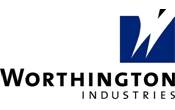Market Segment

June 25, 2020
Worthington Industries Sees Normal Business Conditions Resuming
Written by Sandy Williams
Worthington Industries faced a challenging quarter as stay-at-home orders and closure of nonessential businesses impacted the markets it serves. Demand levels fluctuated depending on the market with company conditions normal in March, break even in April and profitable in May, albeit at lower levels. Although the economic outlook is still unclear, Worthington expects a return to normal business conditions soon, said President Andy Rose.
Worthington Industries reported net sales of $611.6 million and net earnings of $16.2 million for its fiscal 2020 fourth quarter ending May 31, compared to net sales of $938.8 million and net earnings of $37.7 million in Q4 FY 2019. Lower earnings included $15.7 million in restructuring and impairment charges.
Steel Processing’s net sales were down 44 percent to $328.2 million resulting in an operating loss of $1.8 million for the segment. The company shipped 795,161 tons of processed steel during Q4 compared to 940,844 tons a year ago.
Pressure Cylinder net sales fell 12 percent to $282.9 million due to lower volumes in the oil and gas sector and a shift in product mix in the industrial products business. Pressure Cylinder volume increased to 23.3 million units in Q4 compared to 20.5 million units in Q4 2019. The drop in sales was partially offset by higher volume in consumer products. Operating income for the segment declined $7.9 million to $13.5 million for the quarter driven by impairment and restructuring charges and weakness in the European industrial products business.
Worthington exited from its two remaining Engineered Cab segments in Stow, Ohio, and Greensburg, Ind., during the fourth quarter.
“Demand was impacted by COVID-19-related shutdowns, and the company took steps to size its workforce to better match the demand environment, implementing a combination of furloughs, designed to allow the company to ramp up production when market conditions improve, and permanent workforce reductions,” said Worthington’s press release. “As of June 25, over half of the furloughed employees have returned to work. Worthington has taken additional cost-cutting measures which include reducing discretionary spending including travel, implementing a freeze on hiring, and deferring non-essential and non-growth-oriented capital investments.”
Looking forward, Rose sees both positive and negative effects from the virus on commercial construction. On the negative side, the shift to work from home will mean less construction of new office buildings, but on the positive side, existing buildings will need updates and alterations to align with changes to business operations. As automotive ramps up, a correlating improvement is expected for Worthington’s steel products segment.
Chief Financial Officer Joe Hayek noted that the COVID-19 crisis has resulted in the reshoring or nearshoring of some supply chains, which will benefit the company in the future.
Worthington Industries announced that the transition of Andy Rose to President and CEO will be effective Sept. 1. Current President and CEO John McConnell will continue to serve the company in the role of Executive Chairman.







